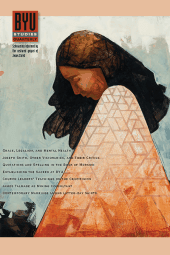Journal
Game Theory, the Prisoner's Dilemma, and the Book of Mormon

Title
Game Theory, the Prisoner's Dilemma, and the Book of Mormon
Publication Type
Journal Article
Year of Publication
2013
Authors
Schwartz, Robert F. (Primary)
Journal
BYU Studies Quarterly
Pagination
67-112
Volume
52
Issue
2
Abstract
Game theory has been applied to a number of disciplines, including economics, law, politics, sociology, and Bible studies, but this article is the first serious attempt to apply it to the Book of Mormon narrative. One particularly important model in game theory is known as the Prisoner's Dilemma, which emphasizes the possibility and benefits of cooperation in the face of conflict. The Book of Mormon account is an almost constant narrative based on conflict, first within the family of Lehi and then between two warring factions that arise from a split in that original Book of Mormon family. These conflicts tend to fit the Prisoner's Dilemma model extremely well. In a final estimation, the Prisoner's Dilemma and its application in the Book of Mormon provide another way of looking at the Book of Mormon's core messages of atonement, redemption, and the gospel of Jesus Christ.
Bibliographic Citation
Terms of use
Items in the BMC Archive are made publicly available for non-commercial, private use. Inclusion within the BMC Archive does not imply endorsement. Items do not represent the official views of The Church of Jesus Christ of Latter-day Saints or of Book of Mormon Central.